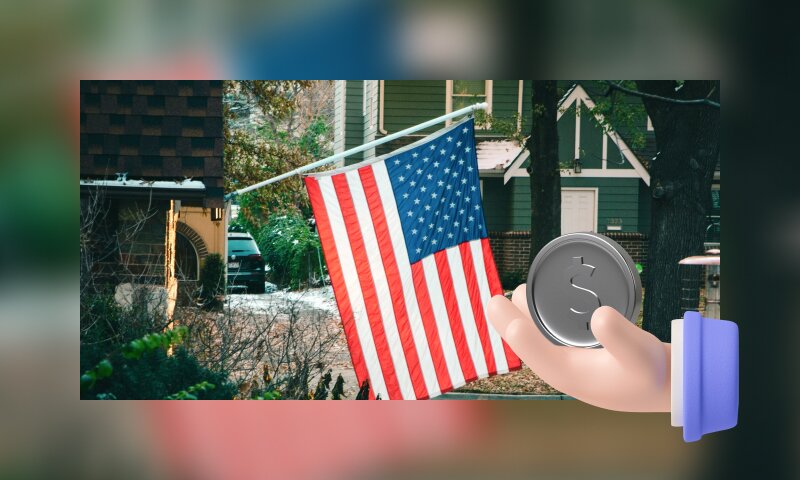For many first-time homebuyers with military experience, navigating the world of VA mortgages can be intimidating. The VA home loan program offers a loan designed to make homeownership more accessible for service members.
Here’s what you need to know about how it works, if you qualify, and the benefits.
What Is a VA Loan?
A VA loan, which stands for Veterans Affairs loan, is a specialized mortgage loan program designed to make homeownership more attainable for eligible veterans, military personnel, and certain family members. These loans benefit those who have served their country and can be an excellent option for first-time homebuyers with military experience.
How Does a VA Loan Work?
VA loans are unique because they are guaranteed by the U.S. Department of Veterans Affairs but issued by private lenders. This government backing reduces the risk for lenders, allowing them to offer more attractive terms, such as lower interest rates, to borrowers with military experience.
While the VA guarantees the loan, it's important to note that the VA itself doesn't lend money directly to homebuyers. Instead, VA loans are issued by private lenders, such as banks and mortgage companies, who participate in the VA program. This private lender acts as the primary point of contact throughout the loan process and manages your mortgage.
Who Qualifies for a VA Loan?
To make the most of this program, it's essential to understand who qualifies. Here's a breakdown of the eligibility requirements:
Active Service During Peace Time
Active-duty service members who serve for at least 90 consecutive days during periods of peace are typically eligible for VA loans.
The 90-day requirement may vary for those who served during specific eras, so it's important to consult with the Department of Veterans Affairs or a VA-approved lender for precise details.
Active Service During Wartime
Active-duty service members who served during wartime may be eligible for as little as 90 days of service.
The U.S. Department of Veterans Affairs determines the specific wartime periods and can change, so it's crucial to check for the most up-to-date information.
National Guard and Reserve Service
National Guard and Reserves members can also qualify for VA loans, provided they meet specific service requirements.
Generally, it requires six years of service in the National Guard or Reserves, but the eligibility criteria may vary depending on specific circumstances.
Spouses and Surviving Spouses
Certain spouses of veterans and service members may be eligible for VA loans.
Surviving spouses of service members who died in the line of duty or as a result of a service-connected disability may be eligible for VA loan benefits.
Eligibility Certificate
You'll need a certificate of eligibility (COE) to apply for a VA loan. This document verifies your military service and confirms your eligibility for the loan.
You can obtain your COE through the VA's eBenefits portal or by working with a VA-approved lender who can assist you in acquiring this crucial document.
While the VA sets these general eligibility guidelines, lenders may have additional requirements or guidelines to qualify for a VA loan. Therefore, consulting with a VA-approved lender is a good practice to navigate the application process and ensure you meet all necessary criteria.
What Is a Certificate of Eligibility?
A certificate of eligibility, often abbreviated as COE, is an official document issued by the U.S. Department of Veterans Affairs. It serves as tangible proof of your eligibility for a VA home loan, establishing that you meet the necessary criteria as a military service member, veteran, or eligible family member.
A COE serves several critical purposes in the loan application process:
- Confirms that you meet the specific eligibility requirements for a VA home loan. Lenders rely on this document to ensure your entitlement to the benefits of the VA loan program.
- Tangible proof of your military service. It also provides the necessary information to apply for a VA loan, streamlining the application process.
- This document contains valuable information about the loan guarantee provided by the VA. This guarantee represents the portion of the loan the VA will cover in the event of default, offering reassurance to the mortgage lender.
- Indicates whether you are exempt from the VA funding fee. While most VA loan borrowers pay a funding fee, certain veterans with service-connected disabilities or other qualifying factors are exempt. The COE clearly states your exemption status.
How to Obtain a COE
There are multiple methods to obtain a Certificate of Eligibility:
- Online application: You can apply online through the VA's eBenefits portal. The application process typically involves providing your personal information, military service details, and other pertinent information.
- Through a VA-approved lender: Many VA-approved lenders can assist you in obtaining your COE. They have the expertise to guide you through the application process and often have direct access to the VA's system to expedite the issuance of your COE.
- By mail: You can also request your COE by mailing a completed VA Form 26-1880 to the VA's Eligibility Center. This option may take more time than applying online or through a lender.
What Are the Benefits of a VA Loan?
These loans are unique in their structure and offer several advantages for homebuyers. Let's delve deeper into the mechanics of VA loans:
Government Backing
The U.S. Department of Veterans Affairs backs VA loans. This means that the VA guarantees a portion of the loan, effectively serving as insurance for the lender. The government's guarantee reduces the risk for VA lenders, potentially making them more willing to provide favorable terms to borrowers.
You May Not Need a Downpayment
One of the most significant advantages of VA loans is that they typically do not require a down payment. This means eligible borrowers can purchase a home with no money down, which is a significant relief for many first-time buyers.
Competitive Interest Rates
VA loans may offer lower interest rates. This is another benefit of the government guarantee, as lenders are often more willing to offer competitive rates due to reduced risk.
No Official Credit Score Minimum
The VA does not mandate a specific minimum credit score that all lenders must adhere to. Instead, the VA allows lenders to establish their credit requirements. This flexibility is one of the strengths of VA loans.
While there is no specific minimum credit score set by the Department of Veterans Affairs (VA) to qualify for a VA loan, the credit score requirements are determined by the individual VA-approved lenders.
No Private Mortgage Insurance
Unlike many other mortgage options, VA loans do not require private mortgage insurance (PMI). PMI is typically needed if you make a down payment of less than 20% on a conventional loan. This omission can save you a substantial amount of money over the life of your loan.
Flexible Repayment Terms
VA loans May offer flexible repayment terms, allowing you to choose between fixed-rate and adjustable-rate mortgages (ARMs). Fixed-rate mortgages provide stability with consistent monthly payments, while ARMs may offer lower initial rates that adjust over time.
Limited Closing Costs
The VA loan program has rules to limit the closing costs that veterans can be charged, making it more affordable to close the deal on your new home.
What Are the Downsides?
While VA home loans are a fantastic option for many, they do have some potential downsides:
- VA funding fee: The funding fee varies based on your service and down payment, but this cost is usually rolled into the loan.
- Property requirements: Not all properties are eligible for VA loans. The home must meet specific standards, which could limit your choices. VA loan property requirements focus on the home's condition and safety rather than its style, size, or aesthetics.
- Limited eligibility requirements: VA loans are exclusively for those with military experience, so not everyone can take advantage of this loan program.
What Types of Homes Qualify for a VA Loan?
VA loans can be used to purchase various types of homes, including:
- Single-family homes
- Condos (if they meet VA approval)
- New construction
- Multi-unit properties (up to four units, with one unit occupied by the borrower)
- Manufactured homes and lots (if they meet VA requirements)
Bottom Line
For first-time homebuyers with military experience, VA loans can be a valuable resource. These loans may provide favorable terms and conditions, making them an excellent choice for those who qualify. However, it is essential to weigh the benefits against the downsides and understand the property requirements before proceeding.
Before making an offer on a home with a VA loan, working with a qualified real estate agent who understands VA loan requirements and can help you find a property that meets these standards is advisable.









